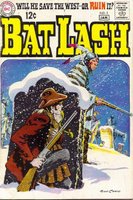But ACG started publishing letters to the editor in their horror mags and apparently these satisfied the post office's requirements. DC, realizing that free letters from their fans were cheaper than whatever they paid for the text stories switched gradually, over a long period of time, to letters columns.
Superboy #68 (October, 1958) was the first issue of that title to feature a letters column. And oh, boy could you see the future of the Silver Age writ large upon that first page:

Okay, no more melting bullets with his X-Ray Vision (perhaps this is why Superboy developed "heat vision" to begin with? Superboy's adventures are taking place during WWII, so don't show the TV antennas on the roofs. Why can't he just make a couple diamonds everytime a charity needs some money? And we get an amusing letter about Supe's fascination with the LL girls, which turns out to be hugely prophetic.
These letters may not seem like much, but they clearly drove characterization for years. First, we get the careful "can his powers really do that?" that marked the Weisinger era. Next we get promo for an upcoming story. Then a time continuity mistake that DC admits is a boo-boo (as they liked to call it in those G-Rated days).
Superboy #70 had more letters of the same type:

Apparently a common enough complaint that DC decided to do a story about it, explaining that the glass for his lenses came from the rocket that carried him to earth.
And another complaint about the collapsed time problem that bedeviled Superboy:

Of course, the problem is that if you have Superboy reacting to 10-year-old fads he's going to seem awfully drab, and yet DC had to maintain the illusion that his adventures were taking place years ago, before Clark became Superman. It was a circle they never quite managed to square.
You can see the continuity being forced on the editors by the readers, or at least forced to be committed to:







No comments:
Post a Comment